The Snowman Read online
ALSO BY JO NESBØ
The Devil’s Star
Nemesis
The Redbreast
THIS IS A BORZOI BOOK
PUBLISHED BY ALFRED A. KNOPF
Translation copyright © 2010 by Don Bartlett
Excerpt from The Leopard, translation copyright © by Don Bartlett
All rights reserved. Published in the United States by Alfred A. Knopf, a division of Random House, Inc., New York.
www.aaknopf.com
Originally published in Norway as Snømannen by H. Aschehoug & Co. (W. Nygaard), Oslo, in 2007. Copyright © 2007 by Jo Nesbø. This translation was originally published in Great Britain by Harvill Secker, an imprint of the Random House Group Ltd., London, in 2010.
Knopf, Borzoi Books, and the colophon are registered trademarks of Random House, Inc.
Grateful acknowledgment is made to Bug Music for permission to reprint lyrics from “Call Me on Your Way Back Home” by Ryan Adams, copyright © 2000 by Barland Music (BMI)/Administered by Bug Music. All rights reserved. Reprinted by permission of Bug Music.
This eBook contains an excerpt from the forthcoming book The Leopard by Jo Nesbø. This excerpt for this edition may not reflect the final contents of the forthcoming edition, which was originally published in Norway ad Panserhjerte by H. Aschehoug & Co. (W. Nygaard), Oslo, in 2009. Copyright © 2009 by Jo Nesbø. This translation was originally published in Great Britain by Harvill Seker, an imprint of the Random House Group, Ltd., London, in 2011.
Library of Congress Cataloging-in-Publication Data
Nesbø, Jo, date.
[Snømannen. English]
The snowman / Jo Nesbø ; translated by Don Bartlett.
p. cm.
“Originally published in Norway as Snømannen by H. Aschehoug & Co. (W. Nygaard), Oslo, in 2007. This translation originally published in Great Britain by Harvill Secker, an imprint of the Random House Group Ltd.,
London, in 2010”—T.p. verso.
eISBN: 978-0-307-59957-5
1. Hole, Harry (Fictitious character) 2. Police—Norway—Oslo—Fiction.
3. Women—Crimes against—Fiction. 4. Serial murder investigation—Fiction. I. Bartlett, Don. II. Title.
PT8951.24.E83S5613 2011
839.82’38—dc22 2010049170
This is a work of fiction. Names, characters, places, and incidents either are the product of the author’s imagination or are used fictitiously. Any resemblance to actual persons, living or dead, events, or locales is entirely coincidental.
Jacket design by Peter Mendelsund.
v3.1_r1
For Kirsten Hammervoll Nesbø
Contents
Cover
Other Books by This Author
Title Page
Copyright
Dedication
Part One
1: Wednesday, November 5, 1980: The Snowman
2: November 2, 2004 — Day 1: Pebble-Eyes
3: Day 1: Cochineal
4: Day 2: The Disappearance
5: November 4, 1992: The Totem Pole
6: Day 2: Cellular Phone
7: Day 3: Hidden Statistics
8: Day 3: Swan Neck
9: Day 3: The Pit
Part Two
10: Day 4: Chalk
11: Day 4: Death Mask
12: Day 7: The Conversation
13: Day 8: Paper
14: Day 9: Bergen
Part Three
15: Day 9: Number Eight
16: Day 10: Curling
17: Day 14: Good News
18: Day 15: View
19: Day 16: TV
Part Four
20: Day 17: The Sunglasses
21: Day 18: The Waiting Room
22: Day 18: Match
23: Day 19: Mosaic
24: Day 19: Toowoomba
25: Day 20: Deadline
26: Day 20: The Silence
27: Day 20: The Beginning
28: Day 20: Disease
29: Day 20: Tear Gas
30: Day 20: Scapegoat
31: Day 21: The South Pole
32: Day 21: The Tanks
Part Five
33: Wednesday, November 5, 1980: The Snowman
34: Day 21: Sirens
35: Day 21: Monster
36: Day 21: The Tower
37: Day 22: Dad
38: December 2004: The Swans
Excerpt to The Leopard
A Note About the Author and the Translator
1
WEDNESDAY, NOVEMBER 5, 1980
The Snowman
It was the day the snow came. At eleven o’clock in the morning, large flakes had appeared from a colorless sky and invaded the fields, gardens and lawns of Romerike like an armada from outer space. At two, the snowplows were in action in Lillestrøm, and when, at half past two, Sara Kvinesland slowly and carefully steered her Toyota Corolla SR5 between the detached houses on Kolloveien, the November snow was lying like a down duvet over the rolling countryside.
She was thinking that the houses looked different in daylight. So different that she almost passed his driveway. The car skidded as she applied the brakes, and she heard a groan from the backseat. In the rearview mirror she saw her son’s disgruntled face.
“It won’t take long, my love,” she said.
In front of the garage there was a large patch of black pavement amid all the white, and she realized that the moving van had been there. Her throat constricted. She hoped she wasn’t too late.
“Who lives here?” came from the backseat.
“Just someone I know,” Sara said, automatically checking her hair in the mirror. “Ten minutes, my love. I’ll leave the key in the ignition so you can listen to the radio.”
She went without waiting for a response, slithered in her slippery shoes up to the door she had been through so many times, but never like this, not in the middle of the day, in full view of all the neighbors’ prying eyes. Not that late-night visits would seem any more innocent, but for some reason acts of this kind felt more appropriate when performed after the fall of darkness.
She heard the buzz of the doorbell inside, like a bumblebee in a jam jar. Feeling her desperation mount, she glanced at the windows of the neighboring houses. They gave nothing away, just returned reflections of bare black apple trees, gray sky and milky-white terrain. Then, at last, she heard footsteps behind the door and heaved a sigh of relief. The next moment she was inside and in his arms.
“Don’t go, darling,” she said, hearing the sob already straining at her vocal cords.
“I have to,” he said in a monotone that suggested a refrain he had tired of long ago. His hands sought familiar paths, of which they never tired.
“No, you don’t,” she whispered into his ear. “But you want to. You don’t dare any longer.”
“This has nothing to do with you and me.”
She could hear the irritation creeping into his voice at the same time as his hand, the strong but gentle hand, slid down over her spine and inside the waistband of her skirt and tights. They were like a pair of practiced dancers who knew their partner’s every move, step, breath, rhythm. First, the white lovemaking. The good one. Then the black one. The pain.
His hand caressed her coat, searching for her nipple under the thick material. He was eternally fascinated by her nipples; he always returned to them. Perhaps it was because he didn’t have any himself.
“Did you park in front of the garage?” he asked with a firm tweak.
She nodded and felt the pain shoot into her head like a dart of pleasure. Her sex had already opened for him. “My son’s waiting in the car.”
His hand came to an abrupt halt.
“He knows nothing,” she groaned, sensing his hand falter.
“And your husba
nd? Where’s he now?”
“Where do you think? At work, of course.”
Now it was she who sounded irritated. Both because he had brought her husband into the conversation and it was difficult for her to say anything at all about him without getting irritated, and because her body needed him, quickly. Sara Kvinesland opened his fly.
“Don’t … ,” he began, grabbing her around the wrist. She slapped him hard with her other hand. He looked at her in amazement as a red flush spread across his cheek. She smiled, grabbed his thick black hair and pulled his face down to hers.
“You can go,” she hissed. “But first you have to fuck me. Is that understood?”
She felt his breath against her face. It was coming in hefty gasps now. Again she slapped him with her free hand, and his dick was growing in her other.
· · ·
He thrust, a bit harder each time, but it was over now. She was numb, the magic was gone, the tension had dissolved and all that was left was despair. She was losing him. Now, as she lay there, she had lost him. All the years she had yearned, all the tears she had cried, the desperate things he had made her do. Without giving anything back. Except for one thing.
He was standing at the foot of the bed and taking her with closed eyes. Sara stared at his chest. At first she had thought it strange, but after a while she had begun to like the sight of unbroken white skin over his pectoral muscles. It reminded her of old statues on which the nipples had been omitted out of consideration for public modesty.
His groans were getting louder. She knew that soon he would let out a furious roar. She had loved that roar. The ever-surprised, ecstatic, almost pained expression as though the orgasm surpassed his wildest expectation each and every time. Now she was waiting for the final roar, a bellowing farewell to this freezing box of a bedroom, divested of pictures, curtains and carpets. Then he would get dressed and travel to a different part of the country, where he said he had been offered a job he couldn’t say no to. But he could say no to this. This. And still he would roar with pleasure.
She closed her eyes. But the roar didn’t come. He had stopped.
“What’s up?” she asked, opening her eyes. His features were distorted, all right. But not with pleasure.
“A face,” he whispered.
She flinched. “Where?”
“Outside the window.”
The window was at the other end of the bed, right above her head. She heaved herself around, felt him slip out, already limp. The window above her head was set too high in the wall for her to see out. And too high for anyone standing outside to peer in. Because of the already dwindling daylight all she could see was the double-exposed reflection of the ceiling lamp.
“You saw yourself,” she said, almost pleading.
“That was what I thought at first,” he said, still staring at the window.
Sara pulled herself up onto her knees. Got up and looked into the yard. And there, there was the face.
She laughed out loud with relief. The face was white, with eyes and a mouth made with black pebbles, probably from the driveway. And arms made of twigs from the apple trees.
“Heavens,” she gasped. “It’s only a snowman.”
Then her laugh turned into tears; she sobbed helplessly until she felt his arms around her.
“I have to go now,” she sobbed.
“Stay for a little while longer,” he said.
She stayed for a little while longer.
As Sara approached the garage she saw that almost forty minutes had passed.
He had promised to call her now and then. He had always been a good liar, and for once she was glad. Even before she got to the car she saw her son’s pale face staring at her from the backseat. She pulled at the door and found to her astonishment that it was locked. She peered in at him through steamed-up windows. He opened it only when she knocked on the glass.
She sat in the driver’s seat. The radio was silent and it was ice-cold inside. The key was on the passenger seat. She turned to him. Her son was pale, and his lower lip was trembling.
“Is there anything wrong?” she asked.
“Yes,” he said. “I saw him.”
There was a thin, shrill tone of horror in his voice that she couldn’t recall hearing since he was a little boy jammed between them on the sofa in front of the TV with his hands over his eyes. And now his voice was changing, he had stopped giving her a good-night hug and had started being interested in car engines and girls. And one day he would get in a car with one of them and also leave her.
“What do you mean?” she said, inserting the key in the ignition and turning.
“The snowman …”
There was no response from the engine and panic gripped her without warning. Quite what she was afraid of she didn’t know. She stared out the windshield and turned the key again. Had the battery died?
“And what did the snowman look like?” she asked, pressing the accelerator to the floor and desperately turning the key so hard it felt as though she would break it. He answered, but the response was drowned by the roar of the engine.
Sara put the car in gear and let go of the clutch as if in a sudden hurry to get away. The wheels spun in the soft, slushy snow. She accelerated harder, but the rear of the car slid sideways. By then the tires had spun their way down to the pavement and they lurched forward and skidded into the road.
“Dad’s waiting for us,” she said. “We’ll have to get a move on.”
She switched on the radio and turned up the volume to fill the cold interior with sounds other than her own voice. A broadcaster said for the hundredth time today that last night Ronald Reagan had beaten Jimmy Carter in the American election.
The boy said something again, and she glanced in the mirror.
“What did you say?” she said in a loud voice.
He repeated it, but still she couldn’t hear. She turned down the radio while heading toward the main road and the river, which ran through the countryside like two mournful black stripes. And gave a start when she realized he had leaned forward between the two front seats. His voice sounded like a dry whisper in her ear. As if it were important no one else heard them.
“We’re going to die.”
2
NOVEMBER 2, 2004 — DAY 1
Pebble-Eyes
Harry Hole gave a start and opened his eyes wide. It was freezing cold, and from the dark came the sound of the voice that had awoken him. It announced that the American people would decide today whether their president for the next four years would again be George Walker Bush. November. Harry was thinking they were definitely heading for dark times. He threw off the duvet and placed his feet on the floor. The linoleum was so cold it stung. He left the news blaring from the clock radio and went into the bathroom. Regarded himself in the mirror. November there, too: drawn, grayish pale and overcast. As usual, his eyes were bloodshot, and the pores on his nose large black craters. The bags under his eyes, with their light-blue alcohol-washed irises, would disappear after his face had been ministered to with hot water, a towel and breakfast. He assumed they would, that is. Harry was not sure exactly how his face would fare during the day now that he had turned forty. Whether the wrinkles would be ironed out and peace would fall over the hunted expression he woke with after nights of being ridden by nightmares. Which was most nights. For he avoided mirrors after he left his small, spartan apartment on Sofies Gate and transformed into Inspector Hole of the Crime Squad at the Oslo Police HQ. Then he stared into others’ faces to find their pain, their Achilles’ heels, their nightmares, motives and reasons for self-deception, listening to their fatiguing lies and trying to find a meaning in what he did: imprisoning people who were already imprisoned inside themselves. Prisons of hatred and self-contempt he recognized all too well. He ran a hand over the shorn bristles of blond hair that grew precisely seventy-five inches above the frozen soles of his feet. His collarbone stood out under his skin like a clothes hanger. He had trained a lot since the last ca
se. In a frenzy, some maintained. As well as cycling he had started to lift weights in the fitness room in the bowels of the Police HQ. He liked the burning pain, and the repressed thoughts. Nevertheless, he just became leaner. The fat disappeared and his muscles were layered between skin and bone. And while before he had been broad-shouldered and what Rakel called a natural athlete, now he had begun to resemble the photograph he had once seen of a skinned polar bear: a muscular but shockingly gaunt predator. Quite simply, he was fading away. Not that it actually mattered. Harry sighed. November. It was going to get even darker.
He went into the kitchen, drank a glass of water to relieve his headache and peered through the window in surprise. The roof of the building on the other side of Sofies Gate was white and the bright reflected light made his eyes smart. The first snow had come in the night. He thought of the letter. He did occasionally get such letters, but this one had been special. It had mentioned Toowoomba.
On the radio a nature program had started and an enthusiastic voice was waxing lyrical about seals. “Every summer Berhaus seals collect in the Bering Strait to mate. Since the males are in the majority, the competition for females is so fierce that those males that have managed to procure themselves a female will stick with her during the whole of the breeding period. The male will take care of his partner until the young have been born and can cope by themselves. Not out of love for the female, but out of love for his own genes and hereditary material. Darwinist theory would say that it is natural selection that makes the Berhaus seal monogamous, not morality.”
I wonder, thought Harry.
The voice on the radio was almost turning falsetto with excitement. “But before the seals leave the Bering Strait to search for food in the open sea, the male will try to kill the female. Why? Because a female Berhaus seal will never mate twice with the same male! For her this is about spreading the biological risk of hereditary material, just like on the stock market. For her it makes biological sense to be promiscuous, and the male knows this. By taking her life he wants to stop the young of other seals competing with his own progeny for the same food.”

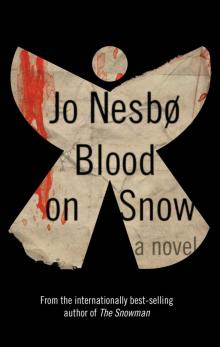 Blood on Snow: A novel
Blood on Snow: A novel Police: A Harry Hole thriller (Oslo Sequence 8)
Police: A Harry Hole thriller (Oslo Sequence 8) Doctor Proctor's Fart Powder: The Great Gold Robbery
Doctor Proctor's Fart Powder: The Great Gold Robbery Bubble in the Bathtub
Bubble in the Bathtub Doctor Proctor's Fart Powder: Time-Travel Bath Bomb
Doctor Proctor's Fart Powder: Time-Travel Bath Bomb The Bat
The Bat Doctor Proctor's Fart Powder: The End of the World. Maybe.
Doctor Proctor's Fart Powder: The End of the World. Maybe.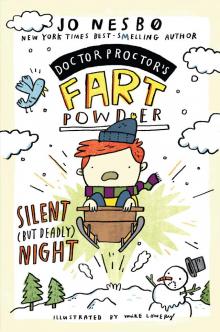 Silent (but Deadly) Night
Silent (but Deadly) Night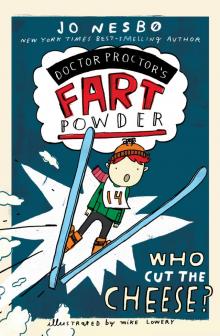 Who Cut the Cheese?
Who Cut the Cheese? Headhunters
Headhunters The Jealousy Man and Other Stories
The Jealousy Man and Other Stories Harry Hole Mysteries 3-Book Bundle
Harry Hole Mysteries 3-Book Bundle The Thirst
The Thirst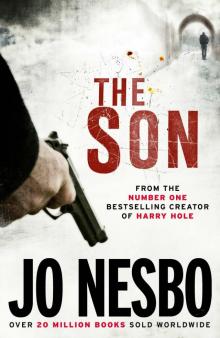 The Son
The Son The Redeemer
The Redeemer The Kingdom
The Kingdom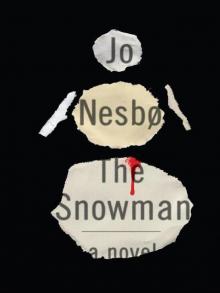 The Snowman
The Snowman The Redbreast
The Redbreast Phantom
Phantom Macbeth
Macbeth The Leopard
The Leopard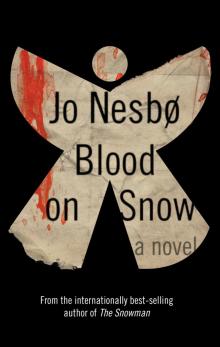 Blood on Snow
Blood on Snow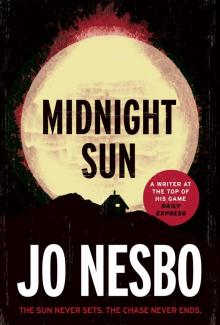 Midnight Sun
Midnight Sun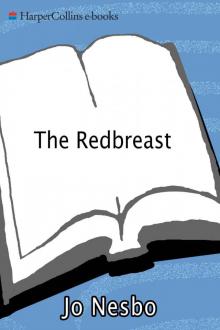 The Redbreast (Harry Hole)
The Redbreast (Harry Hole)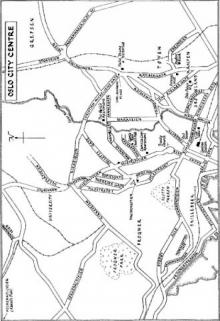 The Devil's Star
The Devil's Star Cockroaches
Cockroaches The Magical Fruit
The Magical Fruit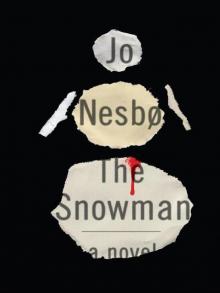 The Snowman: A Harry Hole Novel
The Snowman: A Harry Hole Novel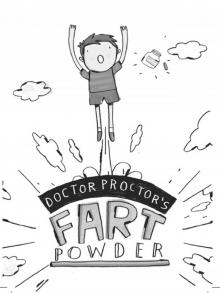 Doctor Proctor's Fart Powder
Doctor Proctor's Fart Powder The Cockroaches
The Cockroaches Knife
Knife Phantom hh-9
Phantom hh-9 The Redbreast hh-3
The Redbreast hh-3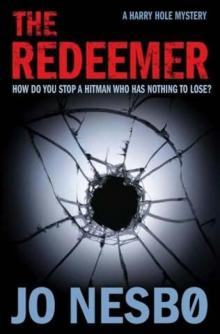 The Redeemer hh-6
The Redeemer hh-6 The Leopard hh-8
The Leopard hh-8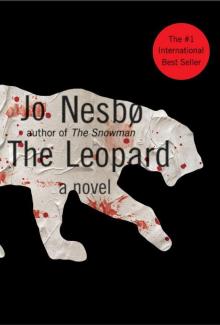 The Leopard: An Inspector Harry Hole Novel
The Leopard: An Inspector Harry Hole Novel The Great Gold Robbery
The Great Gold Robbery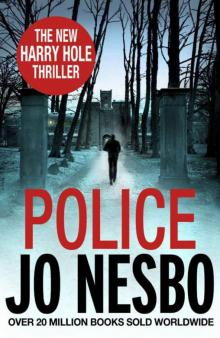 Police hh-10
Police hh-10 The End of the World. Maybe
The End of the World. Maybe The Thirst: Harry Hole 11
The Thirst: Harry Hole 11 Nemesis - Harry Hole 02
Nemesis - Harry Hole 02 The Devil's star hh-5
The Devil's star hh-5 Time-Travel Bath Bomb
Time-Travel Bath Bomb